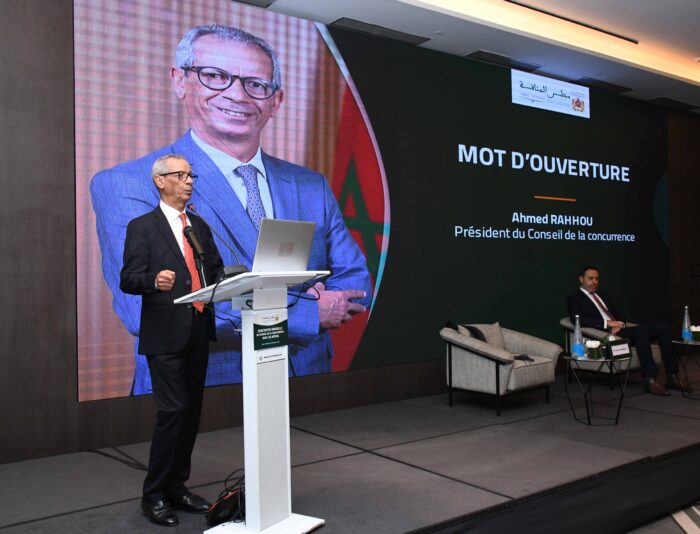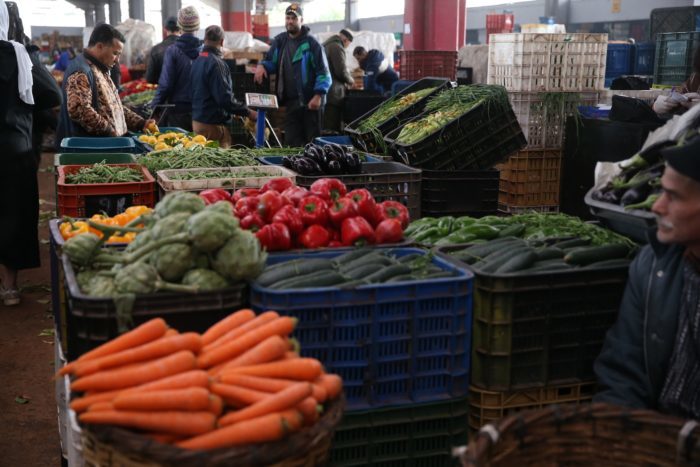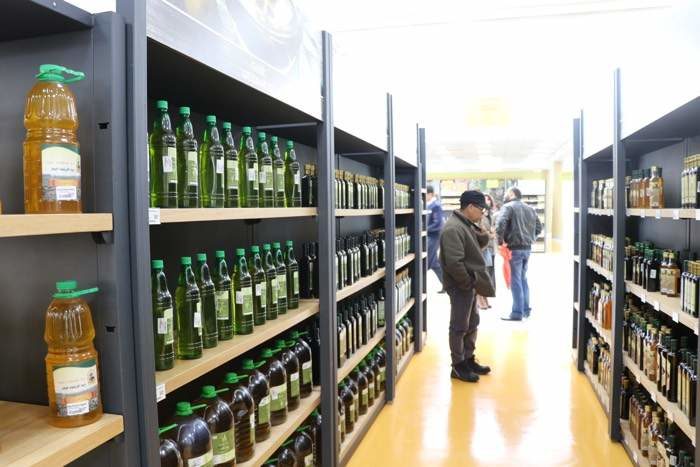The Antitrust Council (Conseil de la Concurrence) « has no prerogative to control prices, nor does the government, since we are in a regime of price freedom. » This was the response of the council president, Ahmed Rahhou on February 18 in Rabat, when asked about his organization’s action in the face of soaring consumer prices in Morocco.
In Rahhou’s opinion: we also need to work « hard » to « clear up the confusion that remains in the minds of a number of operators and even the general public. »

Apart from a few products that remain subsidized or controlled by the state, such as sugar and soft wheat flour, the rest are subject to the rules of the free market. Normally, free competition, gradually introduced in Morocco through a series of reforms, should ultimately benefit consumers. As there are several companies and manufacturers in an industry, they should do their best to supply consumers with the best products, and above all, at the best prices. But is this the case?
Too many cartels?
« Fouzi Mourji, professor of applied econometrics at the Faculty of Legal, Economic and Social Sciences, Hassan II University in Casablanca, told TelQuel: « We went from a period of historically subsidized and administered prices, with obvious state control, until the 1980s, when structural adjustment took place, to price liberalization, with control limited to the prices of basic necessities.
This statement was confirmed in 2014 with the entry into force of Law 104.12 on freedom of pricing and competition and Law 20.13 on the Competition Council, under former Prime Minister Abdelilah Benkirane. To clearly define the council’s powers, other texts were adopted by the Akhannouch government. Today, although the Council’s decision-making powers have been strengthened, it is clear that they are not being used to their fullest extent, or at least not in all sectors.
« If the Competition Council can’t tell people they’re selling at too high a price, it still has the power to control cartels »
« If the competition authority can’t control prices or tell people they’re selling too high, it still has the power to control cartels. In a number of sectors, notably energy and industry, we have operators who collude, » points out Fouzi Mourji. Nine oil companies, operating as a cartel in Morocco on prices at the gas pumps, have been sanctioned by the Antitrust Council, with a fine of 1.84 billion dirhams.
More recently, in April 2024, the Council noted the existence of a price agreement between certain economic operators in the sardine supply industry. This agreement was « likely to distort free competition in the market concerned and harm consumer interests. » Concerns of an established « illicit cartel » were also brought to bear on café owners and managers, prompting the Council to open an investigation. What about other sectors?
After the inflation that following the Covid-19 pandemic, many manufacturers in Morocco decided to reduce the quantity of their products sold in shops. « Once again, given the lack of competition, these manufacturers have cut quantities instead of prices. Instead of selling you 250 grams, they sell 230 grams in the same pack to keep the same price« , Fouzi Mourji points out.
Unjustified margins
Another example is the price of certain fruits and vegetables, which have risen substantially. « If the price of transport has risen by 10%, that doesn’t justify increasing the price of bananas by 10%. Because in the price of a banana, transport only accounts for, let’s say, 20% of the cost of getting it to market and then to the consumer« , he explains.
According to him, this increase should normally be made « in proportion to what these costs represent in the overall cost of transporting the banana. However, what we often observe is that most operators do this in an exaggerated manner« .
The same applies to transportation, where white cabs or grand taxis have decided to raise the fare from 5 to 6 dirhams. « While the price of petrol has risen by 10%, they have applied a 20% increase« , laments the professor.

Behind this situation lies insufficient competition on the national market giving rise to the risk of cartels. In other words, says Mourji, it is these cartels that « contribute to price manipulation, with margins that are sometimes unjustified by the economy and economic conditions« . He also points out that in difficult economic times, all operators must « tighten their belts » rather than « maintain or even increase their margins« .
As for the Antitrust Council, Ahmed Rahhou explained that his body and the government can only intervene on prices when they are « distorted by the unfree play of competition, cartels, restrictions on market access, illicit stockpiling » or « a whole host of things prohibited by law« .
For more control
The government does, however, have the legal ability to take temporary measures against excessive price rises or falls under exceptional circumstances such as a public calamity or a manifestly abnormal market situation in a given sector. Such measures would occur after consultation with the Antitrust Council. This prerogative is provided for in Article 4 of law 104.12 on freedom of pricing and competition. The law states that the duration of any corrective measures may not exceed six months, extendable once by the Administration.
« Prices are free, it’s true. But when they reach exorbitant levels, the government has the right to intervene and set price ceilings »
« Prices are free, that’s true. But when they reach exorbitant levels, the government has the right to intervene and set price ceilings (…). The government has all the legal means at its disposal to ensure the country’s food stability« , Bouazza El Kherrati, President of the Moroccan Federation on Consumer Rights, told TelQuel last January.
Another issue on which the government can take action is that of middlemen and speculators in the agricultural sector. Nizar Baraka, Minister of Equipment and Water, has put this issue back on the table. Speaking at a partisan meeting on February 15 in Ouled Frej near El Jadida, the Secretary General of Istiqlal acknowledged that middlemen are making exorbitant margins on red meats, despite government subsidies. « We are in Chaâbane and I say to you: fear God and stop stealing money from Moroccans! » he said, addressing them. He made the same speech to draw attention to the rise in poultry prices.
Jackpot for middlemen
Questioned on this subject on February 18, Ahmed Rahhou asserted that intermediaries and speculators had an « essential role » in the smooth running of the market. However, he also acknowledged that speculation « in its current form poses a real problem, since more than 50% of the price of products goes to these people« .
In an opinion issued in May 2024, the Council explained that intermediaries act as price makers, influencing the economic conditions of the fruit and vegetable sector. Their strategic position even enables them to dictate the prices at which growers can sell their produce and those at which end consumers must buy it. A situation that creates a « power imbalance » with repercussions throughout the value chain.
The Council’s analysis also revealed a degree of price convergence at both wholesale and retail levels. This suggests the existence of « implicit or explicit » price coordination between the various players in the chain. In such cases, competitive behavior can be altered, leading to market distortions and a loss of economic efficiency, the authority stressed. Such practices can limit competition, reduce producers’ profit margins and increase costs for end consumers.
According to the council’s opinion, another problem lies in the predominance of long circuits, where several intermediaries are involved in the supply chain. This multiplicity of players can lead to delays, additional costs and price distortions, undermining the fluidity of trade and the competitiveness of products on the market.
Shorten circuits
The solution, according to the council, would be to encourage more sales via a direct-to-consumer circuit, or at least a shorter one. This would involve a maximum of one intermediary between producer and consumer, regardless of the distance covered by the product. This is a route that only operators such as supermarkets can currently afford in Morocco. To make this model a reality, the council wants to push towards more diversified sales methods, such as farm stores, online platforms, farmers’ markets or specialized stores.

In its opinion, the Council took France as an example, where the bill on Balanced commercial relations in the agricultural and food sector and healthy, sustainable food accessible to all (EGALIM), was adopted in 2018. It promotes short circuits and strengthens the place of local products in stores, notably by imposing a minimum percentage of local products in supermarkets.
The Council also cites Spain and Germany, where short circuits have also developed, with initiatives such as farmers’ markets and agricultural cooperatives, farm stores and online platforms facilitating the direct sale of agricultural products to local consumers.
Ultimately, short circuits enable farmers to set their prices and sell directly to consumers who are « informed and concerned about the provenance and quality of products« . What’s more, by eliminating or reducing intermediaries, these circuits offer consumers fresh, quality produce at competitive prices, while guaranteeing fair remuneration for producers.
Written in French by Ghita Ismaïli, edited in English by Anglomedia




